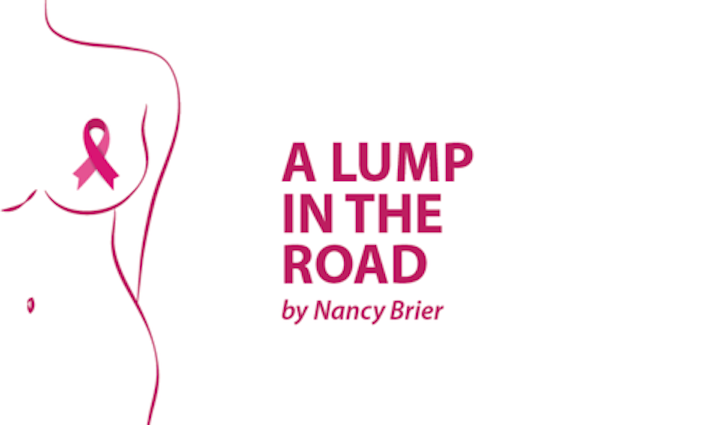The guy in front of me at Safeway dropped a can of green beans on the floor, and I jumped out of my skin. I guess you could say I’m a little edgy these days.
This Thursday, I’ll know if my deadly disease is back or if I get another six-month reprieve. Living this way, in six-month chunks, is getting to be exhausting.
When I finished treatment for triple-negative breast cancer, my doctor told me that for the next five years, I’d have to come every six months for check-ups and mammograms. After that, the chance that my cancer will return plummets. It’s a curious way to live, compelling me to dread the future while celebrating the present.
I sometimes wonder: Should I make long-term investments, or should I book a budget-busting trip to Tahiti? I’d love a fruity drink with my husband in one of those over-the-water hotel rooms they show in glossy brochures. But if I make it to old age, I don’t want to subsist on cat food because we blew our savings in paradise.
When my appointments come around, I always think of a meeting I had with my doctor right before my first chemo session. He’s a smart guy, but I’ve never figured out why he chose that moment to share my survivability statistics. They’re bleak.
At the time, I wondered why I should even bother with chemo. The skull-and-cross-bones labels on those meds don’t inspire a lot of confidence, especially for someone like me. Before cancer, I hesitated to take an aspirin and seldom indulged in a second glass of wine. Bludgeoning my system with chemicals? Me? For slim odds?
He told me I have a 40 percent chance that my cancer will come back, and if it does, it’s likely to be fatal. I’m unskilled enough at math to fool myself that my chances aren’t all that bad, or maybe I’m just an optimist. After all, people routinely bet on worse odds at casinos, and the truly mathematically challenged among us even buy lottery tickets.
These musings about casinos, probability statistics, and survival coincided with a comment my pastor made last Sunday. Like a lot of people I know, I often pray for the courage and wisdom to accept God’s will. That prayer makes it easier for me to accept all the sucky things life dishes out and helps me entertain the idea that there may be a bigger picture I don’t yet understand.
“I always hear about accepting God’s will,” said the reverend, Dr. Joe Hooper. “But it’s usually when I’m at someone’s deathbed. Or when I learn about a nasty diagnosis.” He went on to say something challenging and funny. “Why don’t we ever invoke God’s will at the roulette table? Does ‘accepting God’s will’ always have to be the last resort?”
I like Joe because he can border on blasphemy, at least when I compare his style to the good nuns I grew up with. Sister Delma never asked what sort of prayer would be most appropriate in Las Vegas or suggested I give God a shout out while I’m rolling dice.
Joe got me wondering. Do I really think it’s God’s will for me to have cancer? For my 14-year-old daughter to experience the loss of her mom and for my husband to grieve the death of his wife? Of course not.
But, somehow, I need to coexist with the reality of illness, injustices, and tragedies – things I can’t possibly understand. And with Thursday’s appointment looming, I need to figure out how to get through the line at the grocery store without jumping every time someone drops their canned goods.
One of the luxuries of cancer is that it creates space to contemplate these questions: The big ones, like the nature of God, and the little ones, like how to get through difficult moments.
Next week, I’ll at least get clarity.
I may not be any wiser about God and my role in the universe, but I’ll know if I get another six months to figure it all out. Either way, I’ll let you know.
***
Note: Breast Cancer News is strictly a news and information website about the disease. It does not provide medical advice, diagnosis, or treatment. This content is not intended to be a substitute for professional medical advice, diagnosis, or treatment. Always seek the advice of your physician or other qualified health provider with any questions you may have regarding a medical condition. Never disregard professional medical advice or delay in seeking it because of something you have read on this website. The opinions expressed in this column are not those of Breast Cancer News, or its parent company, BioNews Services, and are intended to spark discussion about issues pertaining to breast cancer.


